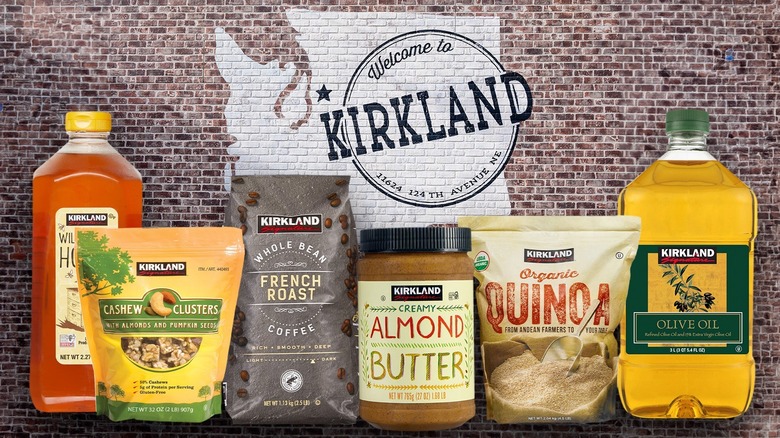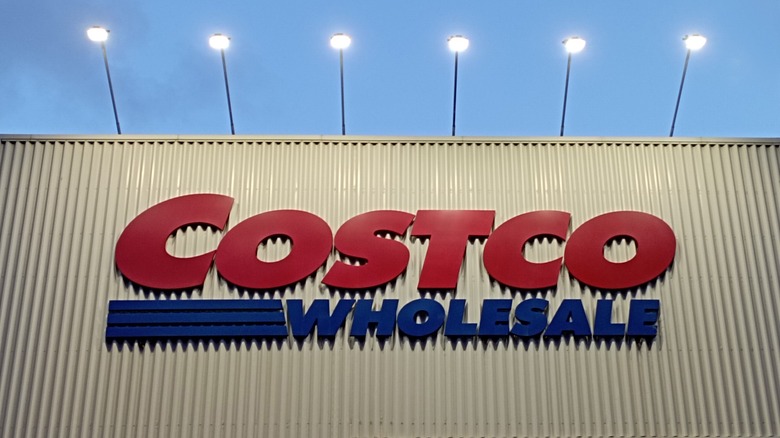How Costco's Kirkland Signature Brand Got Its Name
Costco connoisseurs worldwide are familiar with the store's reputation for selling high-quality products at a fair price, such as the hidden gems among its prepared food selections and its legendary $5 rotisserie chicken. However, the real key to its success seems to be its store brand, Kirkland Signature. The name is so popular among customers that it accounted for 25% of Costco's total sales in 2021, earning it about $58 billion that year.
What may be most shocking about Kirkland Signature's success as a store brand is that it's been around for fewer than 30 years. From 1983 through 1994, Costco employed the same strategy as other chain stores by creating a store brand for each type of product. Names like Simply soda, Clout detergent, and Ballantrae wine graced the shelves, allowing customers to identify what kind of product they were buying via brand name.
However, co-founder Jim Senegal started to question this strategy in the early '90s as the company began to grow internationally. He wanted to create a single store brand that was instantly recognizable anywhere in the world. When attempts to license his first brand name choice, Seattle Signature, were denied, Senegal was undeterred. At the same time, Costco's headquarters had recently moved just north of Seattle to Kirkland, Washington. Senegal used that name instead and the Kirkland Signature brand made its debut in 1995.
Kirkland's Signature move supports its storied reputation
Though Costco HQ has since relocated to Issaquah, Washington, Kirkland Signature has remained the name of its trusted store brand. One of the greatest advantages to placing all store brand products under a single umbrella is the cost savings. Rather than purchasing 30 different labels for different products, Costco can instead invest in a single label for a single brand. This results in money saved that the company can then pass on to the customer.
Another big reason customers remain loyal to Kirkland Signature is the semi-open secret of which companies produce its products. Kirkland Signature brand Greek yogurt, for instance, is very likely made by Erhmann, a German dairy company with a reputation for excellence. Additionally, Kirkland Signature liquor reportedly comes from a variety of high-end distilleries, making these bottles a popular pick for those who want top-shelf spirits at lower-shelf prices.
Unifying store brands not only allowed Costco to offer higher-quality products, but enabled it to do so at a reduced cost. Kirkland Signature's prices are typically 20% lower than other well-known store brands. While part of the cost savings is due to Costco's warehouse-style stores and membership business model, uniting its store-brand products under one label has certainly made an impact.

